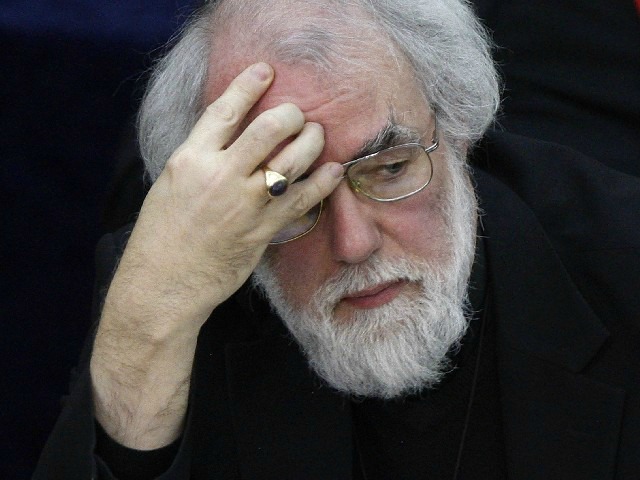Former Archbishop of Canterbury Rowan Williams has again courted controversy, by opining that primary school teachers should be allowed to wear the niqab, or veil, while teaching. During an interview with the Christian think-tank Theos, he claimed that people’s fears regarding the veil were “misplaced”, and that acceptance of the veil was merely a matter of overcoming “cultural obstacles”.
This is not the first time that Lord Williams has been rebuked for suggesting that Britain should be more accommodating of Islam. In 2008, he was accused of suggesting that sharia law should be adopted in parallel to the British legal system; an accusation he denied.
The comments came during a discussion of Lord Williams’ new book, The Edge of Words. Examining the role that words have in language and communication, versus other cues, Lord Williams said “As I learn a language, I learn not only to identify objects, I learn how to interact with another speaker. We all know what happens when people don’t learn that.
“I suppose that’s what panics people about, let’s say, a primary school teacher wearing the face veil. As a matter of fact I think that’s largely a misplaced anxiety, but I can see where it comes from.
“I’ve actually been in public discussions in Pakistan with women wearing full face veil, and you learn to read differently, it’s not that those codes don’t happen… but there’s a cultural obstacle to overcome.”
His words have reignited a fire storm started by Liberal Democrat Member of Parliament Jeremy Browne. Last year, in his role as a Home Office Minister (from which he has since resigned), Browne said that he was “instinctively uneasy” about bans, but that it may be necessary to ban veils in schools to protect Muslim children who may be forced to wear one.
“My own view, I don’t think we should end up like different countries where we tell people how they go about their business. I do think there is an issue with teachers in the classroom…that might be an area where a full veil might be inappropriate.
“There is genuine debate about whether girls should feel a compulsion to wear a veil when society deems children to be unable to express personal choices about other areas like buying alcohol, smoking or getting married.
“We should be very cautious about imposing religious conformity on a society which has always valued freedom of expression,” he told the Telegraph.
Both his party leader Nick Clegg and Prime Minister David Cameron suggested they may support a ban in the classroom.
Lord Williams first made headlines with his views about Islam in 2008 in his role as Archbishop of Canterbury, when he said “as a matter of fact certain provisions of sharia are already recognised in our society and under our law”.
His website explains: “When the question was put to him that: “the application of sharia in certain circumstances – if we want to achieve this cohesion and take seriously peoples’ religion – seems unavoidable?”, he indicated his assent.”
This was widely reported as a call for Britain to adopt Sharia law, an interpretation that Lord Williams denied.
His website further expounds his ideas: “As such he said that sharia is a method of law rather than a single complete and final system ready to be applied wholesale to every situation, and noted that there was room, even within Islamic states which apply sharia, for some level of ‘dual identity’, where the state is not in fact religiously homogenous.”
This is an interpretation refuted by many Muslims. Samuel Shahid, a Christian-Islamic scholar explains in his essay Rights of Non-Muslims in an Islamic State that, according to the Islamic scholar Mawdudi, “An Islamic state is essentially an ideological state, and is thus radically different from a national state”.
Shahid writes “This statement made by Mawdudi lays the basic foundation for the political, economical, social, and religious system of all Islamic countries which impose the Islamic law. This ideological system intentionally discriminates between people according to their religious affiliations.”
He goes on to explain that non-Muslims in an Islamic State are not viewed as citizens with full rights, and will be barred from holding certain civil and religious offices. Furthermore, those classed as Zimmis (“those in custody”) pay a Jizya or ‘tribute’.
He notes “Muslim Muftis (legal authorities) agree that the contract of the Zimmis should be offered primarily to the People of the Book, that is, Christians and Jews, then to the Magis or Zoroastrians. However, they disagree on whether any contract should be signed with other groups such as communists or atheists.”
Nonetheless, Lord Williams has continued to speak in favour of Islam, even as recently as this August when he appeared as a speaker at the annual Living Islam Festival in Lincolnshire, organised by the Islamic Society of Britain. There, he claimed that Islam was “restoring British values”.
According to the Times, asked if he thought Islam was restoring British values, he said: “Yes. I’m thinking of the way in which, for example, in Birmingham we have seen a local parish and a mosque combining together to provide family services and youth activities, both acting out of a very strong sense that this is what communities ought to do.”

COMMENTS
Please let us know if you're having issues with commenting.